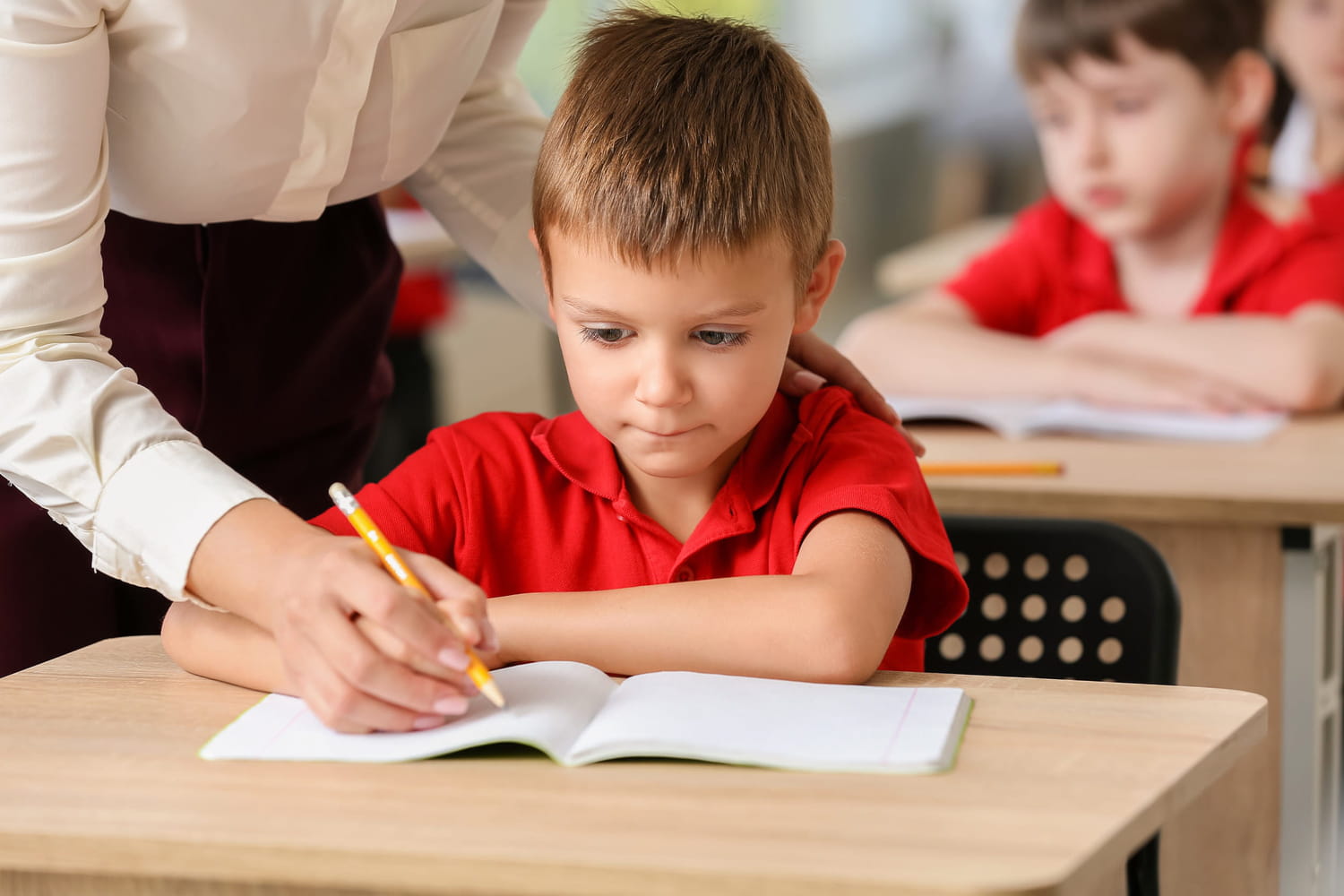Inattention, agitation, distraction … Many children are struggling to stay concentrated in class. What can parents do in the face of these difficulties? When should you consult? Answers with Stephan Valentin, psychologist specializing in early childhood.
Spending on several hours attentive on your chair in the classroom is not easy for all children. Some discuss, move constantly, let themselves be distracted by what is happening around them or escape in their thoughts. These behaviors can be a way to escape pressure when an exercise seems too complicated. But for parents, these signs of inattention quickly raise concerns: attention disorder, hyperactivity, school failure … when it is really necessary to be alarmed? And above all, how to accompany your child to improve their concentration? The explanations of Stephan Valentin, doctor of psychology.
At what age does a child manage to concentrate in class?
Contrary to what one might think, the concentration is not innate, it is acquired over time. As Stephan Valentin explains to us, “For example, it is completely normal that a 5 -year -old child can only concentrate for 10 to 15 minutes on a single activity, being seated. Besides, at 10 years, a child can only concentrate a few more minutes (20 minutes). However, children are that children are quite capable of concentrating when it comes to an activity that they like. In addition, schoolchildren of industrialized countries are more and more To learn.
It is recommended to multiply everyday activities: “Reading a story, making a puzzle or a board game, they are excellent ways to show the child that the game can help him find a balance between movement and calm”, underlines the expert. Sport is also beneficial: “He learns to respect rules and remain attentive.” Even cooking can become a useful exercise: “Follow a recipe to the pleasure of tasting a cake stimulates the desire to learn.” The expert finally insists on the role of parents: “During these moments, they also have to stay focused. It means not watching television or their smartphone. The example they give is essential.”
Stephan Valentin advises to prepare the environment: “It is important to ventilate the room and rid the office of everything that can distract the child.” Hydration also plays a role: “Put a glass of water at hand. Sodas, fruit juice and other sweets, too rich in refined sugars, harm the concentration.” At this stage, the attitude of the parents remains decisive: “Value his efforts and his progress. Growing or punishing him will not help him concentrate”he explains.
In what cases should you worry?
For the psychologist, the dialogue is essential: “The child must feel that his parents share the rules set by the school.” In the event of repeated difficulties, he recommends interacting with the teacher, in the presence of the child and, if necessary, the school psychologist: “This allows you to seek the origin of the problem together and decide whether a specialized consultation is necessary.” Very often, it is above all a question of reassuring parents by reminding them that their child has the right to be as he is.
Thanks to Stephan Valentin, author of the book “School phobia: Understanding to act” Au Éditions Enrick B.


